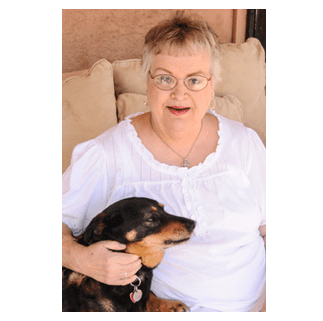I’ve had episodes of depression throughout my life, but it was only seventeen years ago that I realized I had a mental illness. Up until that time, I blamed the episodes on circumstances of my life like being away from home my first time, escaping from Vietnam in ’75, my husband becoming seriously ill, him dying, my daughters going off to college, etc. Some of the episodes were so severe that I seriously considered suicide, but I still didn’t think I had a mental illness.
After my husband died I went to seminary, was ordained, worked in an aging congregation that needed to close, and did close it. Then I wasn’t called to another church. I was depressed and no one wanted a depressed minister. That was seventeen years ago, and I became so depressed I was again suicidal, but, this time, I ended up in the hospital for ten days. I got a diagnosis of recurring major depression. The doctor tried me on various combinations of medication and, finally months later, decided on a particular combination of two anti-depressants and an anti-psychotic. I also was seeing a therapist weekly. A year later, I went back into the hospital for a week.
At first, I thought the situation was hopeless because I did research online and learned that the episodes would only become more frequent and severe. No one talked about recovery being possible. Then I met a woman on a Warm Line who had my diagnosis and was doing better than I was. I began to learn about recovery and I volunteered on the Warm Line. Eventually, I got a job with my mental health provider facilitating educational recovery groups and providing peer support. I was the first person in Arizona to be hired by their provider agency as staff. After eight years of this, I became a case manager for a year and a half.
I remained depressed all this time, and I would tell the doctors especially when it was severe, but all the doctors would do was increase the anti-psychotic for a few months. It was somewhat frustrating always talking about recovery, still being depressed and thinking the combination of medication I was taking was the best the doctors could do. Still I continued to believe that recovery was possible and that I was in recovery.
Being a case manager got the better of me. The doctor increased my medication again so much that the neurologist thought I had mild dementia. I realized I needed to quit that job and get another, and I was planning to do just that. Before I could give notice though, I became severely depressed and knew that, if I went home from work that day, I would kill myself. I talked to the program director who called my psychiatrist for an immediate appointment and I went on short-term disability. I eventually applied for SSDI.
After not working for several months, the stress lessened and we decreased the anti-psychotic lower than it had been in years. Then a wonderful thing happened. I had a hypomanic episode which I greatly enjoyed after fourteen years of being depressed. It was only disruptive in that I talked fast, frequently changed the topic and had to resist being impulsive when I was driving. The doctor said, “Your diagnosis is wrong. You actually have bipolar disorder.” She began changing my medication and, after a few months, we found a combination that worked. So except for two brief episodes of depression, I haven’t been depressed in almost three years. Sometimes I have a very brief hypomanic episode but it is never disruptive except I don’t sleep.
Since I haven’t been depressed, I’ve been able to focus on my physical health. I started eating right and exercising, I’ve lost over 100 pounds, and I’ve been able to reduce my diabetes and high blood pressure medication.
The last two years I have worked at helping my denomination become more supportive of people who have a mental illness. I am currently looking for work again. I’d like to provide peer support and facilitate educational groups. I love talking about recovery.
Please know that recovery is possible!


